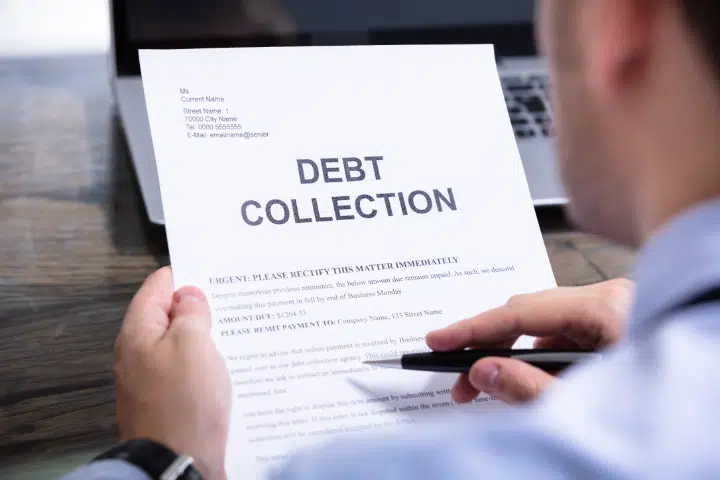
Legal action can secure debts in Dutch litigation. In the Netherlands, creditors may use legal proceedings to enforce debt repayment. This process involves Dutch court orders and can lead to asset seizure or bankruptcy for defaulting debtors, ensuring creditors’ rights are protected.
Debt collection proceedings in the Netherlands are different from those in other countries. Some procedural aspects can be complex and it is advisable to seek legal advice from an experienced litigation and debt collection lawyer. At the same time, Dutch procedural law offers many procedural options, such as the imposition of pre-judgment attachments.In the complex and ever-evolving landscape of debt litigation, understanding the legal intricacies and strategies involved is crucial for both debtors and creditors in the Netherlands
With a focus on securing debts, this discussion aims to provide comprehensive insights into Dutch debt litigation, shedding light on the rights and responsibilities of both parties, the legal procedures for debt collection, and the options available to debtors in securing their debts. By delving into the key considerations, this analysis will equip readers with the necessary knowledge to navigate the challenging terrain of Dutch debt litigation. Whether you are a debtor seeking to protect your assets or a creditor pursuing your rightful dues, this exploration of legal insights will provide valuable guidance for all parties involved.
Overview of Dutch Debt Litigation
Dutch debt litigation is a complex and multifaceted legal process that plays a crucial role in resolving disputes related to outstanding debts in the Netherlands. It involves the enforcement of debt obligations through legal means, such as court proceedings or alternative dispute resolution methods. The goal of Dutch debt litigation is to provide a fair and efficient mechanism for creditors to collect their debts while also protecting debtors’ rights.
The Dutch legal system provides several avenues for pursuing debt litigation, including civil courts, administrative tribunals, and arbitration. The choice of forum often depends on the nature of the debt, the amount in dispute, and the parties involved. Civil courts have jurisdiction over most debt disputes, while administrative tribunals handle specific types of debt, such as tax or social security debts. Arbitration may be chosen when parties agree to resolve their debt disputes through a private, neutral third party.
In Dutch debt litigation, creditors typically initiate the legal process by filing a claim with the appropriate court or tribunal. This initiates a series of legal proceedings, including the exchange of written pleadings, oral hearings, and the rendering of a judgment. The judgment determines the rights and obligations of the parties and can be enforced through various means, such as wage garnishment, bank account seizures, or property liens.
Rights and Responsibilities of Debtors
Debtors in Dutch debt litigation are granted certain rights and have corresponding responsibilities that shape their involvement in the legal process. These rights and responsibilities are crucial in ensuring a fair and balanced approach to debt collection and litigation. Here are three key aspects of the rights and responsibilities of debtors in Dutch debt litigation:
- Right to be informed: Debtors have the right to be informed about the debt they owe, including the amount, the creditor, and any interest or charges associated with it. This allows debtors to understand the basis of the claim against them and enables them to make informed decisions regarding their legal options.
- Right to dispute the debt: Debtors have the right to dispute the validity or accuracy of the debt claimed against them. This can include challenging the amount owed, asserting that the debt has already been paid, or disputing the creditor’s legal standing to pursue the debt. Debtors can exercise this right by filing a defense or counterclaim in court.
- Responsibility to engage in the legal process: Debtors have the responsibility to actively engage in the legal process and comply with court orders and procedures. This includes responding to court summons, providing relevant information and documentation when requested, and attending hearings. Failure to fulfill these responsibilities can have serious consequences, such as default judgments or enforcement actions.
Understanding these rights and responsibilities is essential for debtors navigating Dutch debt litigation. By asserting their rights and fulfilling their responsibilities, debtors can ensure a fair and just resolution to their debt-related disputes.
Rights and Responsibilities of Creditors in the Netherlands
In the context of Dutch debt litigation, creditors hold certain rights and responsibilities that complement and interact with the rights and responsibilities of debtors. These rights and responsibilities are essential for maintaining a fair and balanced debt recovery process.
Creditors have the right to demand payment from debtors by the terms and conditions of the debt agreement. They also have the right to take legal action to recover their debts, including initiating legal proceedings and obtaining a court judgment against the debtor. Additionally, creditors have the right to enforce their judgments through various means, such as garnishing wages, freezing bank accounts, or seizing assets.
Alongside these rights, creditors also have responsibilities. They must act in good faith and comply with the relevant laws and regulations governing debt collection and litigation. They should provide accurate and complete information about the debt to the debtor, including the amount owed and the terms of repayment. Furthermore, creditors should respect the debtor’s rights, such as the right to privacy and the right to be free from harassment or undue pressure.
Legal Procedures for Debt Collection in Holland
Legal procedures for debt collection in the context of Dutch debt litigation involve a series of structured steps aimed at recovering outstanding debts from debtors while ensuring fairness and adherence to the law. These procedures are crucial in providing a systematic approach to resolving debt disputes and protecting the rights of both creditors and debtors.
The legal procedures for debt collection in the Netherlands typically include:
- Pre-litigation Phase: This phase involves sending formal demand letters to the debtor, requesting payment within a specified timeframe. If the debtor fails to respond or comply, legal action may be initiated.
- Filing a Lawsuit: If efforts to resolve the debt amicably are unsuccessful, the creditor can file a lawsuit with the competent court. The court will then issue a summons to the debtor, informing them of the legal proceedings.
- Enforcement: Once a court judgment is obtained in favor of the creditor, enforcement measures can be taken to recover the debt. This may include seizing assets, garnishing wages, or placing a lien on property.
These legal procedures ensure a fair and transparent process for debt collection in the Netherlands, allowing creditors to pursue their outstanding debts while safeguarding the rights of debtors. By following these structured steps, both parties can navigate the legal system to resolve debt disputes efficiently and effectively.
Options for Debtors to Secure Debts in the Netherlands
Having established the legal procedures for debt collection in the Netherlands, it is essential to now explore the available options that debtors have to secure their debts in a manner that is fair and compliant with the law.
Debtors facing financial difficulties can take advantage of various mechanisms to secure their debts and protect their assets from being seized by creditors.
One option available to debtors is to negotiate a debt restructuring or repayment plan with their creditors. This can involve discussions about reducing interest rates, extending repayment periods, or even settling the debt for a lesser amount. Debtors can also explore the possibility of obtaining new loans to consolidate their existing debts, which can help simplify their repayment obligations.
Another option is to seek protection through bankruptcy proceedings. While bankruptcy may seem like a drastic measure, it can provide debtors with an opportunity to reorganize their finances and have their debts discharged. However, it is important to note that bankruptcy should be considered as a last resort, as it can have long-lasting consequences on the debtor’s creditworthiness.
Additionally, debtors can consider applying for protective measures such as a moratorium or a payment arrangement with the court. These measures can provide temporary relief by suspending enforcement actions and giving debtors the opportunity to renegotiate their debts.
Strategies for Creditors in Dutch Debt Litigation
Creditors involved in debt litigation employ various strategic approaches to ensure the successful recovery of their debts while navigating the legal complexities of the process. These strategies are designed to maximize the chances of a favorable outcome and optimize the collection of outstanding debts.
Some common strategic approaches utilized by creditors in debt litigation include:
- Thorough investigation of the debtor’s financial situation: Creditors often conduct a detailed analysis of the debtor’s financial standing to assess their ability to repay the debt. This involves examining the debtor’s assets, income, and liabilities to determine the most effective course of action.
- Negotiation and settlement: Creditors may opt for negotiation and settlement with the debtor to avoid lengthy and costly litigation. This strategy involves engaging in discussions with the debtor to reach a mutually agreeable resolution, such as a repayment plan or debt restructuring.
- Enforcement measures: In cases where negotiation fails or the debtor refuses to cooperate, creditors may resort to enforcement measures. These can include seizing the debtor’s assets, garnishing wages, or obtaining court orders to enforce payment.
Key Considerations in Dutch Debt Litigation
When navigating Dutch debt litigation, it is crucial for parties involved to carefully consider several key factors to ensure a successful outcome. Understanding these considerations can help parties navigate the complex legal landscape and make informed decisions throughout the litigation process.
Firstly, parties must assess the validity and enforceability of the debt. It is important to review the underlying agreement, invoices, or other documents to ensure that the debt is legally binding and can be enforced in court. Additionally, parties should consider whether the debt is time-barred under Dutch law, as there are strict statutory limitation periods that may prevent the recovery of older debts.
Secondly, parties should evaluate the financial position of the debtor. It is essential to assess the debtor’s ability to satisfy the debt, as pursuing litigation may be futile if the debtor lacks the necessary assets or income. Conducting a thorough financial analysis can help parties determine the most effective and efficient course of action.
Thirdly, parties should consider alternative dispute resolution mechanisms, such as negotiation or mediation, before resorting to litigation. These methods can potentially save time, costs, and maintain business relationships.
Lastly, parties should be aware of the costs and time involved in debt litigation. Understanding the potential expenses and timeline of the litigation process can help parties manage their expectations and make informed decisions about pursuing or settling the debt.
Conclusion
In conclusion, Dutch debt litigation involves various rights and responsibilities for both debtors and creditors. Legal procedures for debt collection are available, and debtors have options to secure their debts. Creditors can adopt different strategies in debt litigation to protect their interests.
Key considerations in Dutch debt litigation include understanding the rights and responsibilities of both parties and navigating the legal procedures effectively. Overall, a thorough understanding of the Dutch debt litigation system is crucial for successfully securing debts and resolving disputes.
If you have any questions or require legal assistance about Dutch debt litigation, please don’t hesitate to reach out to our knowledgeable and dedicated team at our Dutch law firm.


